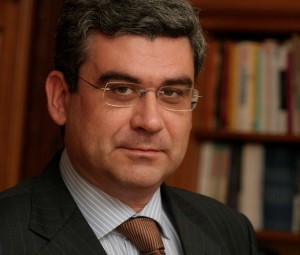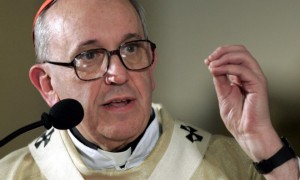
Am selectat mai jos citeva fragmente dintr-un foarte interesant interviu acordat de Teodor Baconschi lui Cristian Patrasconiu pentru platforma LaPunkt. Sper ca ele va vor motiva sa citi intregul interviu, care poate fi accesat la linkul de mai sus.
Avem de-a face, desigur, cu o perspectiva conservatoare si ortodoxa, asumata in mod deschis de autor. Ceea ce nu inseamna insa ca aceasta il scuteste de anumite interpretari partizane si subiective, desigur, inevitabile in orice demers intelectual cinstit.
Enumar, in fuga, citeva dintre acestea:
- perspectiva exclusiv negativa asupra procesului de secularizare in Europa
- invinuirea exclusiva a protestantismului pentru acest ‘flagel’
- cresterea prezentei musulmane in Europa privita preponderent ca o amenintare
- atitudinea implicit critica fata de papa Francisn, pus in contract cu ‘ultimul papă conservator, Benedict al XVI-lea’
si la acestea as putea adauga si altele, dar va las s-o faceti voi insiva.
* * *
Societatea românească e un mozaic de fracturi. Aveam, la 1900, un retard istoric de cel puțin 100 de ani față de Occident (evident, e o apreciere pur estimativă). Aproape un secol mai târziu, când a căzut comunismul, eram, iarăși, una dintre cele mai sărace țări de pe continent. Deși ne-au ajutat să ne dezvoltăm, tranziția democratică și integrarea euro-atlantică n-au făcut decât să ne așeze întru-un sistem de referință care ne-a agravat complexele de inferioritate. Pe acest fundal dislocat, regăsirea tradiției precomuniste, cu o Biserică Ortodoxă liberă, s-a făcut adesea formal și zgomotos, fără creșterea organică de care au nevoie procesele istorice firești. Am intrat în mileniul trei cu povara acestor handicapuri. Prin urmare, nu putem încă avea o atitudinea critică față de Occident: nu l-am trăit pe dinăuntru. Dacă ne socotim ca parte integrantă a lui, ne ies oricând la iveală reminiscențele comuniste și orientale. Dacă îl respingem, nu prea avem ce să punem în loc. Avem, cum s-a spus, o modernizare lipsită de modernitate. Am copiat, în loc să asimilăm. Cu alte cuvinte, în loc să spunem ce e greșit amenajat ”la ei”, ne sar în ochi propriile defecțiuni de parcurs. Continue reading “Interviu Teodor Baconschi – Est-Vest, renaştere şi debandadă spirituală – fragmente”





















